
Eugen Jochum (German: [ˈɔʏɡeːnˈjɔxʊm,ˈɔʏɡn̩-] ; 1 November 1902 – 26 March 1987) was a German conductor, best known for his interpretations of the music of Anton Bruckner, Carl Orff, and Johannes Brahms, among others.

Eugen Jochum (German: [ˈɔʏɡeːnˈjɔxʊm,ˈɔʏɡn̩-] ; 1 November 1902 – 26 March 1987) was a German conductor, best known for his interpretations of the music of Anton Bruckner, Carl Orff, and Johannes Brahms, among others.
Jochum was born to a Roman Catholic family in Babenhausen, near Augsburg, Germany; his father was an organist and conductor. Jochum studied the piano and organ in Augsburg, enrolling in its Academy of Music from 1914 to 1922. [1] He then studied at the Munich Conservatory, with his composition teacher being Hermann von Waltershausen; it was there that he changed his focus to conducting, his teacher being Siegmund von Hausegger, who conducted the first performance of the original version of the Ninth Symphony of Anton Bruckner and made the first recording of it.
Jochum's first post was as a rehearsal pianist at Mönchen-Gladbach, and then in Kiel. He made his conducting debut with the Munich Philharmonic Orchestra in 1926 in a program which included Bruckner's Seventh Symphony. In the same year he was appointed conductor at the Kiel Opera House, where he conducted seventeen operas in his first season, including Der fliegende Holländer , Der Rosenkavalier and Turandot. [2]
After Kiel he went to Mannheim, where Wilhelm Furtwängler praised his conducting. He turned down an offer to conduct twelve concerts with the New York Philharmonic-Symphony Orchestra, believing that his repertory and experience were not yet equal to it. (He did not appear in America until 1958.) His next appointment was as music director in Duisburg, from 1930 to 1932. [3] In 1932 he became chief of the Berlin Radio Orchestra, also conducting 16 concerts a season with the Berlin Philharmonic, and at the Deutsche Oper. [2]
In 1934 Jochum succeeded Karl Böhm as musical director of the Hamburg State Opera and the Hamburg Philharmonic. Throughout the Nazi era, Hamburg remained, as Jochum put it, "reasonably liberal", and Jochum was even able to keep his post despite not joining the party. He performed music by composers such as Hindemith and Bartók elsewhere banned by the Nazis. In 1944, Joseph Goebbels included Jochum in the Gottbegnadeten list.
In the postwar denazification initiatives, however, British and American authorities had a "high-level disagreement" over Jochum that was "an exception" to the usual pattern of British authorities following the American lead: after "initially clearing" Jochum and selecting him to conduct the Munich Philharmonic in May 1945, the American authorities temporarily blacklisted him on grounds that he "had done exceptionally well" during the war and that his brothers had been "fanatical" Nazis; but British authorities "found no fault" with Jochum, arguing that he had never been a member of the Nazi party, SS or Sturmabteilung, had remained a "convinced Roman Catholic," and had "not compromised his artistic integrity." [4] It took until 1948 before the American authorities determined that they could find no evidence of his joining any Nazi organizations. [4]
Jochum continued to serve at Hamburg until 1949, [2] then left when the newly reconstituted Bayerischer Rundfunk appointed him the founding music director of its new orchestra, the Bavarian Radio Symphony Orchestra. To build the orchestra, Jochum "recruited highly qualified musicians," including the Koeckert Quartet as the "nucleus of the strings". [5] Jochum remained music director of the orchestra until 1961; with it, he made numerous recordings, mostly for Deutsche Grammophon. [5]
Jochum was also a regular guest conductor of the Concertgebouw Orchestra, Amsterdam, and served as the orchestra's 'first conductor' (eerste dirigent) from 1941 to 1943, during the chief conductorship of Willem Mengelberg. From 1961 to 1963, Jochum was joint chief conductor of the Concertgebouw Orchestra alongside Bernard Haitink. [6] [7] He conducted frequently in London, with the London Philharmonic Orchestra and the London Symphony Orchestra. In 1975, the LSO appointed him conductor laureate, a position he held until 1978. Jochum served as principal conductor of the Bamberg Symphony from 1969 to 1973. He later worked regularly with the Staatskapelle Dresden, with which he recorded the complete symphonies of Bruckner and "London" symphonies of Joseph Haydn (which latter he also recorded with the London Philharmonic). He appeared regularly at the Salzburg Festival. He also, in 1953–54 and 1971, conducted at the Bayreuth Festspielhaus; he made his debut conducting Tristan und Isolde.
He led the world premieres of various works, including the Concerto for Strings by Boris Blacher, the Concerte per il principe Eugenio by Alberto Bruno Tedeschi, the Suite Française by Werner Egk, the Tanz-Rondo by Gottfried von Einem, and the Symphony No. 6 by Karl Amadeus Hartmann.
He was a regular recording artist, from his first records in 1932. In the stereo LP era, he recorded mainly for Deutsche Grammophon. His DG cycle of the symphonies of Anton Bruckner, split between the Berlin Philharmonic and Bavarian Radio Symphony Orchestra, has remained in the record catalogs ever since its first issue in the 1960s. [8] This cycle and a later Jochum Bruckner cycle, with the Staatskapelle Dresden for EMI, have been widely and frequently acclaimed and have caused his name to be especially associated with this composer. In addition, he was president of the International Bruckner Society from 1950, and wrote extensively about Bruckner interpretation. Still, according to his New York Times obituary, he said in a 1983 interview, "Today, everyone thinks of me as a specialist in Bruckner's symphonies. But I began with the music of Bach, Mozart and Beethoven. And it is to their music that I still feel closest." His recordings of Bach's Mass in B minor and St. John Passion are frequently counted among the finest of these works. His three complete recordings of the Beethoven symphonies have also been strongly praised: they were made with the Berlin Philharmonic and Bavarian Radio Symphony Orchestra in the 1950s for Deutsche Grammophon, with the Royal Concertgebouw Orchestra in the late 1960s for Philips, and with the London Symphony Orchestra in the 1970s for EMI. Jochum also made two complete recordings of the symphonies of Johannes Brahms, one with the Berlin Philharmonic in the mid-1950s, the other with the London Philharmonic in 1977. On the strengths of these sets, the conductor Kenneth Woods called him "the greatest Brahms conductor who ever lived." (Others would nominate Weingartner or Toscanini.) [8] He also recorded the Brahms piano concertos with Emil Gilels, a recording that is often listed among the finest made of these works. His recordings of Mozart, Haydn, Schumann, Wagner and Carl Orff have also been highly praised. His 1967 recording of Carmina Burana is considered by Bill Alford to be an authoritative interpretation, as Orff himself was present during the recording and endorsed the finished product. [9]
Regarding his podium technique, Kenneth Woods blogs, "Look at his hands -- very small and focused motions but so powerful." Woods also states that "his sense of rubato, while still incredibly daring, is perhaps more un-erring than even that of Wilhelm Furtwängler."
Jochum's older brother Otto Jochum (1898–1969) was a composer and choral conductor; his younger brother Georg Ludwig Jochum (1909–1970) was, like Jochum, an orchestral conductor. His daughter Veronica Jochum is a pianist on the faculty of the New England Conservatory of Music in Boston, Massachusetts.
Jochum died in Munich in 1987, at the age of 84. His wife Maria predeceased him, in 1985. [10]

Gustav Heinrich Ernst Martin Wilhelm Furtwängler was a German conductor and composer. He is regarded as one of the greatest symphonic and operatic conductors of the 20th century. He was a major influence for many later conductors, and his name is often mentioned when discussing their interpretative styles.

Bruno Walter was a German-born conductor, pianist, and composer. Born in Berlin, he escaped Nazi Germany in 1933, was naturalised as a French citizen in 1938, and settled in the United States in 1939. He worked closely with Gustav Mahler, whose music he helped to establish in the repertory, held major positions with the Leipzig Gewandhaus Orchestra, New York Philharmonic, Concertgebouw Orchestra, Salzburg Festival, Vienna State Opera, Bavarian State Opera, Staatsoper Unter den Linden and Deutsche Oper Berlin, among others, made recordings of historical and artistic significance, and is widely considered to be one of the great conductors of the 20th century.

The Royal Concertgebouw Orchestra is a Dutch symphony orchestra, based at the Amsterdam Royal Concertgebouw. Considered one of the world's leading orchestras, Queen Beatrix conferred the "Royal" title upon the orchestra in 1988.

Carl Adolph Schuricht was a German conductor.
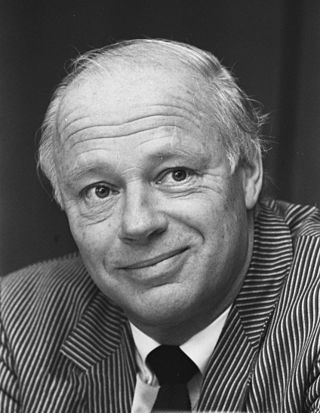
Bernard Johan Herman Haitink was a Dutch conductor and violinist. He was the principal conductor of several international orchestras, beginning with the Royal Concertgebouw Orchestra in 1961. He moved to London, as principal conductor of the London Philharmonic Orchestra from 1967 to 1979, music director at Glyndebourne Opera from 1978 to 1988 and of the Royal Opera House from 1987 to 2002, when he became principal conductor of the Staatskapelle Dresden. Finally, he was principal conductor of the Chicago Symphony Orchestra from 2006 to 2010. The focus of his prolific recording was classical symphonies and orchestral works, but he also conducted operas. He conducted 90 concerts at The Proms in London, the last on 3 September 2019 with the Vienna Philharmonic. His awards include Grammy Awards and the 2015 Gramophone Award for his lifetime achievements.
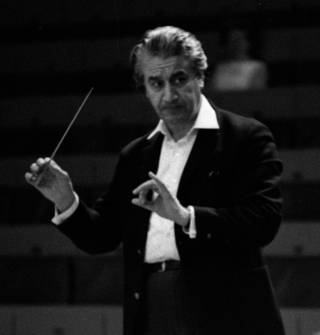
Sergiu Celibidache was a Romanian conductor, composer, musical theorist, and teacher. Educated in his native Romania, and later in Paris and Berlin, Celibidache's career in music spanned over five decades, including tenures as principal conductor of the Munich Philharmonic, the Berlin Philharmonic, the RAI National Symphony Orchestra, the Orchestre de Radio France, the Swedish Radio Symphony Orchestra and many other European orchestras such as the Stuttgart Radio Symphony Orchestra, the Danish National Symphony Orchestra or the London Symphony Orchestra.

István Kertész was a Hungarian orchestral and operatic conductor who throughout his brief career led many of the world's great orchestras, including the Cleveland, Chicago, Philadelphia, New York, Los Angeles, Pittsburgh, Detroit, San Francisco and Minnesota Orchestras in the United States, as well as the London Symphony, Vienna Philharmonic, Berlin Philharmonic, Royal Concertgebouw Orchestra, Israel Philharmonic, and L'Orchestre de la Suisse Romande. His orchestral repertoire numbered over 450 works from all periods, and was matched by a repertoire of some sixty operas ranging from Mozart, Verdi, Puccini and Wagner to the more contemporary Prokofiev, Bartók, Britten, Kodály, Poulenc and Janáček. Kertész was part of a musical tradition that produced fellow Hungarian conductors Fritz Reiner, Antal Doráti, János Ferencsik, Eugene Ormandy, George Szell, János Fürst, Peter Erős, Ferenc Fricsay, and Georg Solti.

Kurt Sanderling, CBE was a German conductor.
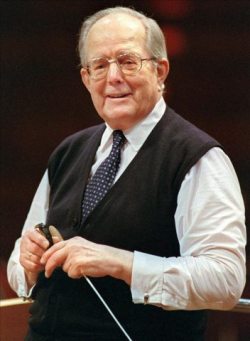
Wolfgang Sawallisch was a German conductor and pianist.
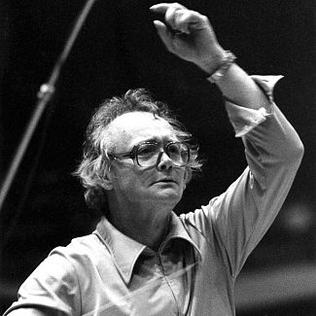
Klaus Hermann Wilhelm Tennstedt was a German conductor from Merseburg. Known for his interpretation of the Austro-German repertoire, especially his sympathetic approaches towards Gustav Mahler, Tennstedt is widely considered one of the greatest and most influential conductors of the late 20th century. He worked with the Swedish Radio Symphony Orchestra, the NDR Symphony Orchestra, and other highly regarded ensembles such as the Berlin Philharmonic Orchestra, and most notably the London Philharmonic Orchestra, with which he was closely associated and recorded many of his celebrated recordings under the EMI label, including a cycle of Mahler's 10 symphonies.
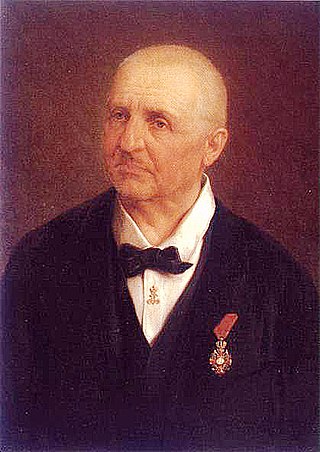
Anton Bruckner's Symphony No. 5 in B-flat major WAB 105, was written in 1875–1876, with minor changes over the next two years. It came at a time of trouble and disillusion for the composer: a lawsuit, from which he was exonerated, and a reduction in salary. Dedicated to Karl von Stremayr, education minister in the Austro-Hungarian Empire, the symphony has at times been nicknamed the "Tragic", the "Church of Faith" or the "Pizzicato"; Bruckner himself referred to it as the "Fantastic" without applying this or any other name formally.

William Steinberg was a German-American conductor.

Christian Thielemann is a German conductor. He is currently Generalmusikdirektor of the Berlin State Opera and chief conductor of the Staatskapelle Berlin.

Hans Schmidt-Isserstedt was a German conductor and composer. After studying at several music academies, he worked in German opera houses between 1923 and 1945, first as a répétiteur and then in increasingly senior conducting posts, ending as Generalmusikdirektor of the Deutsche Oper Berlin.
The Bamberg Symphony is a renowned German orchestra top-class orchestra that has been residing in Bamberg since its foundation in 1946 and travels the world as a touring orchestra.
Hans Graf is an Austrian conductor.
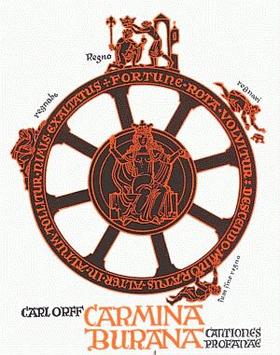
Carmina Burana is a cantata composed in 1935 and 1936 by Carl Orff, based on 24 poems from the medieval collection Carmina Burana. Its full Latin title is Carmina Burana: Cantiones profanae cantoribus et choris cantandae comitantibus instrumentis atque imaginibus magicis. It was first performed by the Oper Frankfurt on 8 June 1937. It is part of Trionfi, a musical triptych that also includes Catulli Carmina and Trionfo di Afrodite. The first and last sections of the piece are called "Fortuna Imperatrix Mundi" and start with "O Fortuna".
Jonas Alber is a German conductor and violinist based in Berlin. He was appointed general music director of the Staatstheater Braunschweig in 1998, becoming Germany’s youngest conductor to hold such a position at the time.

Hans Richter-Haaser was a noted German classical pianist, who was known for his interpretations of Beethoven, Schubert and Schumann. He was also a teacher, a conductor, and a composer.
The conductor Bernard Haitink recorded works, especially symphonies and other orchestral works, with different orchestras. He made recordings for several labels, including Philips Records, EMI Classics, Columbia Records, LSO Live, RCO Live, and CSO Resound.